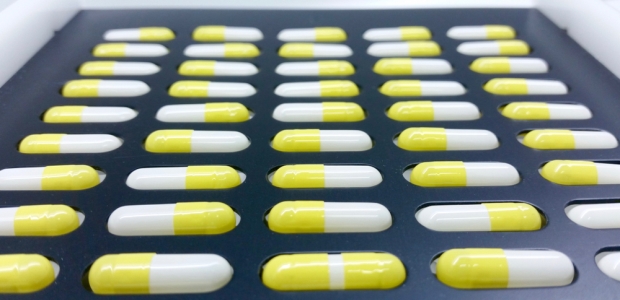
FDA Releases New Guidance on Drug Compounding
Anna Abram, deputy commissioner for Policy, Planning, Legislation and Analyis, said FDA frequently finds insanitary conditions during its inspections of compounding facilities, "such as vermin, insects, and microbial growth in areas where drugs required to be sterile are produced."
FDA released draft and final guidance documents this week related to drug compounding, announcing them in a statement attributed to Anna Abram, FDA deputy commissioner for Policy, Planning, Legislation, and Analysis. It contains her remarks at FDA's seventh intergovernmental meeting on drug compounding -- a meeting series aiming to reduce the risks associated with compounded drug products and improve collaboration between FDA and the states.
"As we all know, compounding can play an important role in patient care, but because compounded drug products are not reviewed by FDA for safety, effectiveness, or quality before they are marketed, they should be used only when necessary to meet patients' medical needs. Federal law contains important provisions applicable to compounded drugs," she says. "During this meeting, we look forward to continuing our ongoing dialogue about appropriate oversight—including inspections and enforcement—of compounders. Unfortunately, FDA continues to see concerning conditions during our inspections and learn of serious adverse events associated with compounded drugs. Since the 2012 outbreak of fungal meningitis, we have overseen more than 200 recalls conducted by compounders, most as a result of FDA inspectional findings indicating lack of sterility assurance. We value the many instances in which we have partnered with states to address emerging risks that present a danger to public health, and we look forward to discussing ways to increase such collaboration moving forward."
She noted that FDA released a 2018 Compounding Policy Priorities Plan earlier this year before announcing the new documents:
Abram said FDA frequently finds insanitary conditions during its inspections of compounding facilities, "such as vermin, insects, and microbial growth in areas where drugs required to be sterile are produced." The states have urged FDA to issue a guidance describing real-world examples of insanitary conditions that it had observed, and she did so, listing these as "some actual examples of conditions that FDA has observed":
- Dead spiders, beetles, ants, wasps, and cockroaches in a ceiling panel directly above the area where employees prepare for sterile processing
- Operators processing sterile drug products with exposed skin, including on their wrists, which sheds particles and bacteria
- Rust on the hood where sterile drugs are produced
- Use of coffee filters to filter particulates
- Toaster ovens used for sterilization
The revised draft guidance is intended to help compounding facilities identify insanitary conditions and implement corrective actions before they lead to harm, she explained.
"I am heartened that since issuing the draft guidance on insanitary conditions in 2016, FDA has observed that many compounders have corrected insanitary conditions that prior FDA inspections of their facilities revealed. However, while we are encouraged by such voluntary compliance, the agency has also taken regulatory action, such as issuing warning letters or working with the Department of Justice on injunctions, when compounding facilities have neglected to take appropriate action to correct the violations," she said.